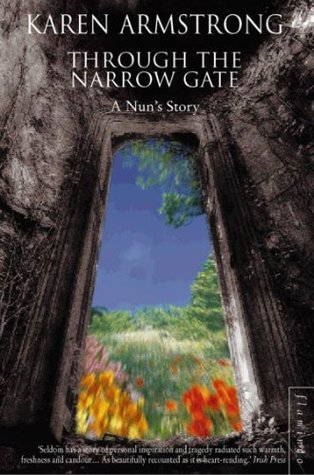What do you think?
Rate this book


Through the Narrow Gate is Karen Armstrong’s memoir of life inside a Catholic convent in the 1960’s.
With gentleness and honesty, Armstrong takes her readers on a revelatory journey that begins with her decision, at the age of seventeen, to devote her life to God as a nun. yet once she embarked upon her spiritual training, she encountered a frightening and oppressive world, fossilized by tradition, which moulded, isolated and pushed her to the limit of what she could endure.
320 pages, Kindle Edition
First published January 1, 1981